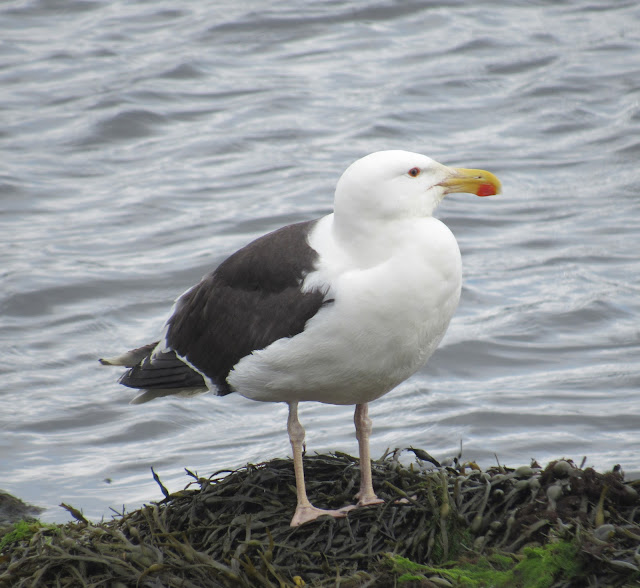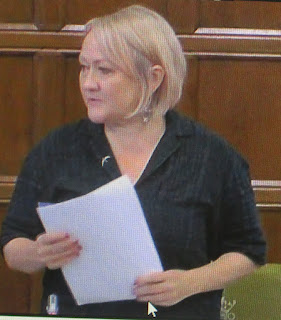THE RSPB has posted its latest list of vacancies - but hurry, the deadline for applications is later this month.
Conservation Scientist – Breeding Wader Scenarios
We have a fantastic opportunity for a scientist to join the England & Wales team within the RSPB Centre for Conservation Science. We are looking for someone with a strong background in ecology, applied statistics, remote sensing and GIS to model contrasting conservation strategies for Lapwing, Redshank and Snipe in three landscapes in lowland England.
Flexible in UK
Closes 24/07/2023
Estate Worker
This is a wonderful opportunity to join a great team saving nature and inspiring people in one of the most wildlife-rich counties in the UK.
RSPB Scotland - Orkney
Closes 23/07/2023
Dundee Community Engagement Officer x2
RSPB Scotland is collaborating with the people who live and work in Dundee to explore how saving nature can meet every challenge. We want two creative, passionate individuals to bring these projects to life, bringing energy, fresh ideas and problem-solving skills. If this sounds like you, we'd love to hear from you!
Dundee
Closes 23/07/2023
Part-Time Project Officer - Climate FORTH Communications (Fixed-Term, Hybrid)
We are looking for an enthusiastic and organised individual with a passion for partnership working to help deliver 'Climate FORTH: Furthering Our Resilience Through Heritage' as Project Officer Communications. This is a part-time, fixed-term contract until 31st October 2026 for 30 hours per week.
Flexible in Central Scotland
Closes 23/07/2023
Part-Time Retail Assistant
We are looking for an enthusiastic team player to join us as a Part-Time Retail Assistant at our Conwy reserve, and help us deliver fantastic customer service on a permanent contract for 22.5 hours per week.
Conwy
Closes 18/07/2023
Project Officer - Climate FORTH Community & Youth Development (Fixed-Term)
We are looking for an enthusiastic and organised individual with a passion for partnership working to help deliver 'Climate FORTH: Furthering Our Resilience Through Heritage' as Project Officer Community & Youth Development. This is a full-time, fixed-term contract until 31st July 2026.
Skinflats and Black Devon Reserve
Closes 23/07/2023
Head of Buying and Merchandising
We are seeking a highly skilled and experienced Head of Buying and Merchandising to lead our Buying and Merchandising team. You will be responsible for driving the strategy to ensure the growth in both sales & profitability while maintaining a strategic business focus to ensure continued development in the buying and merchandising department.
Flexible in UK
Closes 21/07/2023
Part-Time Food & Beverage Assistant
Our busy cafe at RSPB Conwy Reserve is looking for permanent part-time Food and Beverage assistants to join the team part-time for 22.5 hours per week. We are looking for an individual who is able to deliver the highest standards of customer care and assist with the day-to-day running of the cafe operation, in line with set RSPB procedures and routines.
Conwy
Closes 19/07/2023
Conservation Officer
Are you passionate about nature and experienced in conservation delivery for priority species and habitats? We are looking for a skilled and enthusiastic Conservation Officer to join our North East and Cumbria Area Team, to develop and deliver a range of work in The Lake District and other parts of Cumbria.
Cumbria
Closes 20/07/2023
Part Time Estate Worker - RSPB Ecology and Land Management
This is a zero hours, permanent contract role working as part of the RSPB Ecology and Land management Team ELM. ELM is the RSPB contracting team. We work on both RSPB reserves and with other external clients delivering a high quality service whether it be ecological surveys/monitoring work or habitat management work.
Flexible in UK
Closes 11/07/2023
Direct Marketing Manager
Are you a confident and experienced direct marketer who wants to inspire more and more diverse people to support the nature-saving work of the RSPB? Then we need your expertise and energy to help us plan and deliver the product, channel, and promotional strategy for our individual giving activity.
Flexible in UK
Closes 12/07/2023
Land Use Policy Officer
This is a versatile position with chances to conduct policy research, formulate fresh policy concepts, and push for reforms through effective communication and campaign initiatives.
RSPB Scotland - HQ
Closes 21/07/2023
Ecommerce Executive (Maternity Cover)
Our team is currently seeking an E-commerce Executive to join us. As the E-commerce Executive, your expertise and abilities will be utilised to enhance and expand our business, resulting in increased revenue for conservation efforts.
Flexible in UK
Closes 16/07/2023
Wildlife Fundraiser - Bedfordshire
We have an amazing opportunity for someone to join the team as a Wildlife Fundraiser. Each day you will travel to different venues, set up an attractive fundraising stand and spend the day actively engaging with members of the public. The aim is to inspire people to become lifelong members, in this interesting and rewarding role.
Bedfordshire
Closes 09/07/2023
Site Manager - Berney Marshes and Breydon Water
We have an exciting opportunity for an experienced and organised conservation land manager with a passion for nature to lead the RSPB Berney Marshes and Breydon Water Nature Reserves.
Berney Marshes and Breydon Water
Closes 16/07/2023
Ecologist - Biodiversity Net Gain
We are in search of an experienced, energetic, and enthusiastic ecologist to assist in the execution of our biodiversity net gain initiatives throughout England. Your responsibilities will include conducting habitat condition evaluations utilising the Defra Biodiversity Net Gain Metric, enrolling locations, and collaborating on action plans to enhance their ecological state.
Flexible in England
Closes 16/07/2023
Facilities Manager/Administrator - Broadland Reserves
We are looking for an adaptable and organised person with office management skills to join the friendly RSPB team at Strumpshaw Fen to run our office facilities, lead the administrative work programme and provide a variety of support services to our visitor operations and land management teams.
Strumpshaw Fen
Closes 10/07/2023
Science Finance Officer (Fixed Term)
We're seeking a person with demonstrable experience and skills in supporting research funding applications and administering the concomitant income. Collaborating closely with staff based in RSPB's Conservation Science and Project Development and Support teams, the post-holder will also assist with contract management (including key financial administration, monitoring and reporting tasks) to support the conservation of threatened species and habitats throughout the UK and overseas.
Flexible in UK
Closes 09/07/2023
Part-time Food and Beverage Assistant Manager
We're looking for a part-time Food and Beverage Assistant Manager at RSPB Saltholme cafe. As the UK's largest nature conservation charity, we think big and act boldly, hoping that one day we can see a world where wildlife, wild places and all people thrive. Our Food and Beverage teams raise vital funds which enable us to carry out globally important conservation work in the race to save nature. This is a permanent, part-time contract for 27.5 hours per week.
Saltholme
Closes 19/07/2023
Campaigns Developer
Our team is currently seeking a skilled Campaigns Developer to oversee the implementation of various RSPB marketing communications through diverse online and offline channels. The ideal candidate will provide technical guidance to activity owners, create data selections, and offer advice on effective data segmentation to achieve desired outcomes. Proficiency in Apteco Faststats is a must for this position.
Flexible in UK
Closes 07/07/2023
Wildlife Fundraiser - Cambridgeshire
We have an amazing opportunity for someone to join the team as a Wildlife Fundraiser. Each day you will travel to different venues, set up an attractive fundraising stand and spend the day actively engaging with members of the public. The aim is to inspire people to become lifelong members, in this interesting and rewarding role.
Cambridgeshire
Closes 09/07/2023
Rural Surveyor - South-West England (Fixed-Term)
We have a wonderful opportunity for a self-motivated Rural Surveyor to join the RSPB England's Land Team to be based in Southern England, an operational area extending from Cornwall and Devon to Kent and Essex. This is a full-time, fixed-term contract for 23 months.
Flexible in South-West England
Closes 16/07/2023
Wildlife Fundraiser - Bridgnorth
We are excited to offer a fantastic opportunity for individuals seeking to become a Wildlife Fundraiser in Bridgnorth. As a part of the team, you will have the chance to travel to various venues, set up an appealing fundraising stand, and spend your day actively connecting with the public. The goal is to encourage people to become lifelong members, making it a fascinating and fulfilling position.
Bridgnorth
Closes 06/07/2023
Wildlife Fundraiser - Kent
We have an amazing opportunity for someone to join the team as a Wildlife Fundraiser. Each day you will travel to different venues, set up an attractive fundraising stand and spend the day actively engaging with members of the public. The aim is to inspire people to become lifelong members, in this interesting and rewarding role.
Kent
Closes 09/07/2023
Part Time Administrator - RSPB Eastern Solent Reserves (Fixed Term)
Our RSPB Pagham Harbour visitor centre at Sidlesham (West Sussex) is looking for an enthusiastic weekend Administrator / Centre Assistant to help us provide a fabulous experience to our visitors.
Pagham Harbour Local Nature Reserve
Closes 09/07/2023
Senior Development Officer - Scotland
We are seeking a motivated and passionate person with experience in developing relationships with businesses to join our Scotland Funding Development team. Joining RSPB Scotland offers a fantastic opportunity to grow your career as a fundraiser and bring in vital resources for nature.
Flexible in Central Scotland
Closes 16/07/2023
Part-time Cleaner
We are looking for a friendly enthusiastic cleaner to join our team and help keep our facilities at our two reserves, RSPB Fairburn Ings, and RSPB St Aidan's, clean and welcoming to all. You will be part of a wonderful team in the Aire Valley and your role will help ensure our visitors have an exceptional visitor experience. This is a part-time contract for between 12.5 and 15 hours per week.
Fairburn Ings
Closes 21/07/2023
Community Engagement Officer - Shetland (Maternity Cover)
Since piloting the Nature Prescription concept in Shetland and Edinburgh and Leith, and during the pandemic, we have developed a greater understanding of the benefits of (and barriers from) connecting with nature in a meaningful way. This role will help build upon the work which has been done, create resources and work with relevant partners to build upon the previous pilots. This is a part-time maternity cover contract for 22.5 hours per week.
Shetland Office
Closes 09/07/2023
Part-Time Learning Officer (Maternity cover)
This is a fantastic opportunity to inspire a generation of children at RSPB Fairburn Ings. Connecting children to nature through environmental education is a core part of the RSPB's work and we are looking for a passionate and inspirational educator with good general knowledge of ecology and natural history to join our friendly and supportive team. This is a part-time maternity cover contract for 22.5 hours per week.
Fairburn Ings
Closes 14/07/2023
Part-time Food and Beverage Assistants
We're looking for two part-time Food and Beverage Assistants at RSPB Saltholme Cafe. As the UK's largest nature conservation charity, we think big and act boldly, hoping that one day we can see a world where wildlife, wild places and all people thrive. Our Food and Beverage teams raise vital funds which enable us to carry out globally important conservation work in the race to save nature.
* More details at:
Job Vacancies - The RSPB
.jpg)
.jpg)
.jpg)








.jpg)
.JPG)
.JPG)



.JPG)


.JPG)

.jpg)






